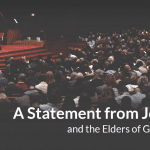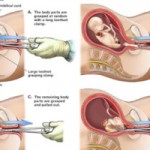The national debts of countries have long-lasting consequences. The GDP-to-debt ratio is a significant indication of a country’s viability to exist. In the U.S., religious organizations have contributed to the problem.
Before the coronavirus shut downs the debt ratios for many countries was already unsustainable. Canada’s was 88 percent, Italy’s 133 percent, USA’s 106 percent, Japan 237 percent. These countries are in more debt than they have ever been before. Debt slows economic growth, results in higher taxes, and more costs for future generations.
States have also been in serious debt situations. Texas, for example, was already facing serious debt problems before its governor shut down the state over a coronavirus positivity rate of less than one percent and death rate of less than half of one percent, both as percentages of the population.
Who pays for the debt? Children who aren’t even born yet.
The U.K., for example, literally just paid its last WWII debt payment to the U.S.
This 10-minute video is worth listening to, which describes the inevitable global financial depression and potential widespread economic collapse:
Instead of acting financially prudent, Congress plunged the nation into further debt, using the coronavirus as an excuse this year. Previous years, there were no excuses to continue to plunge the nation into debt, but that is what Congress has repeatedly done.
This spring, roughly a few hundred local officials and 41 governors single handedly put more than 40 million people out of work, claiming their respective state shutdowns were necessary to prevent the spread of the coronavirus. According to the Government Accountability Office (GAO), 42 million unemployment claims have been filed nationwide since March.
The number of people who have tested positive for COVID-19 in the U.S. is 3.3. million or 1 percent of the population, according to the Centers for Disease Control.
The number who have reportedly died from COVID-19 is 131,000 (although this number is questioned by experts, including the Claremont Institute), or .04 percent.
Neither 1 percent nor .004 percent justify state shutdowns, a national emergency, or what could become a mandatory vaccine required by companies for people to work or travel.
Congress stepped in to provide financial assistance to individuals, families and businesses impacted by state shutdowns by passing key legislation: the CARES Act, the Families First Relief Act, and the Small Business Relief Act (SBRA). The majority in Congress did not have time to read the CARES Act, but passed it anyway.
The final version of the bill signed by the president was released 20 minutes before the Senate voted on it, Rachel Bovard at the Conservative Partnership notes. U.S. Senators were neither informed about any changes made to the bill, nor did they have time to read its 880 pages before they voted for it.
In the U.S. House, one lone voice of conscience stood. Rep. Thomas Massie, R-Ky., requested a recorded vote, which both Republicans and Democrats denied. Meaning, no vote was recorded for the single largest relief bill passed in the House in U.S. history.
Simply by a voice vote members of Congress passed bills that are expected to increase the national debt by $1.76 trillion, and $192 billion, respectively, according to Congressional Budget Office (CBO) projections. The SBRA adds $480 billion to the total.
All told, these bills, combined with increased debt and lost revenue, will add an estimated $5.8 trillion to the national debt, Chris Edwards, economist at the Cato Institute, estimates. In June, the federal budget deficit was $864 billion, an amount greater than the entire federal budget deficit for the year of 2018, according to the CBO.
Congress is expected to pass another $1 trillion stimulus package, which will add even more debt to this total. Additionally, state and local governments are considering a range of tax increases to offset their revenue losses, further burdening taxpayers. Meanwhile, many businesses initially forced to close in March may never reopen.
A recent GAO report reveals that since April, the U.S. Treasury Department sent nearly $1.4 billion worth of CARES Act stimulus payments to DEAD people. The U.S. Department of Labor also estimates that roughly $26 billion worth of improper unemployment insurance payments will be made through the CARES Act/SBRA this year alone.
Tragically, religious organizations in the U.S. have contributed to this.
Rather than remember their historic roots—2020 evangelical leaders held out their hands for “their share” of the federal debt money. They were all too willing to plunge themselves, their congregants, their neighbors and fellow citizens, into unsustainable debt, which if left uncorrected, will collapse the economy.
Through the SBRA, the Small Business Administration (SBA) processed roughly $512 billion guaranteed loans as of June 12, distributed through the Paycheck Protection Program (PPP) in amounts of $150,000 to $10 million.
Initially, many SBA loans were given to multi-million dollar companies that are not small businesses. Some recipients gave back the money to the U.S. Treasury Department after public outcry. But many didn’t.
The SBA recently released the names of 4.9 million PPP recipients that received at least $3 billion as much as $7.5 billion. This is the first batch of recipients to be released. There will be more.
Among them are 10,682 religious organizations. They primarily include Roman Catholic dioceses and churches, Baptist conventions and churches, numerous nondenominational evangelical churches, and some Jewish and Islamic entities.
Historically, churches, synagogues and mosques have relied on tithes from their congregants. Now they have successfully solicited Uncle Sam, who apparently pays quite well. (And why wouldn’t he—after all he is spending someone else’s (the taxpayers’) money.)
To be clear: evangelicals using federal money to pay their salaries appear to have thrown the teachings of the New Testament out window. They have brought into question their credibility—namely their unique claim to believe in the authority of the Word of God. Worse still, they are misleading others about what the term, “evangelical” actually means through their radical departure from biblical principles and teachings that have been the bedrock of evangelicalism for centuries.
No wonder these pastors aren’t standing up against unsustainable debt or America’s political and spiritual atrophy—they’re on the federal payroll.












